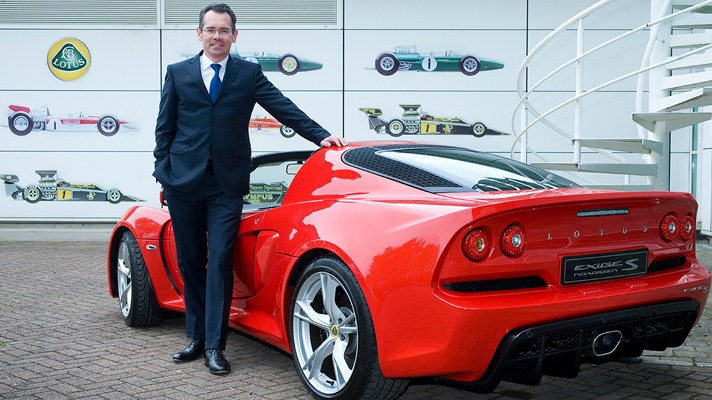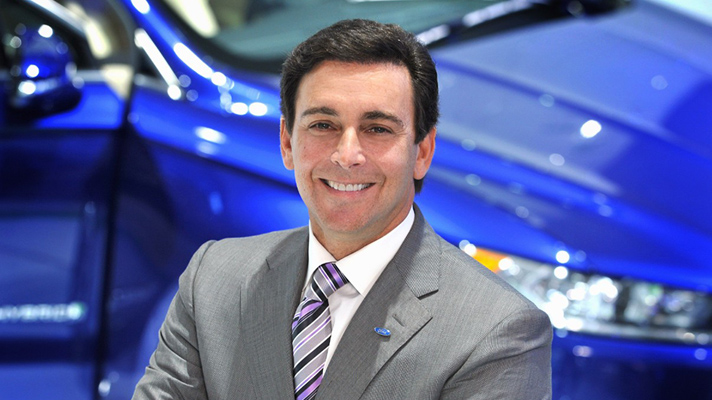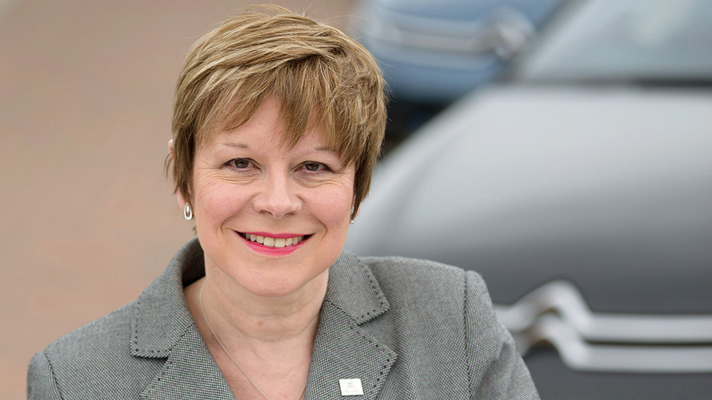
Meet the new car company bosses
Four car companies have got new chief executives this week. What does it all mean for the cars you'll be seeing down the road?
Ford will now be run by Mark Fields. To a degree this means more of the same. Ford's boss since 2006, Alan Mulally, managed to turn around an over-complex company hamstrung by internal battles as well as crippling financial debt. He sold off Jaguar Land Rover, Aston Martin, Volvo and Ford's stake in Mazda, not necessarily because they were losing money (they weren't all, not all the time) but because they were a distraction. He wanted to see the whole of Ford focussed on sorting out a unified global range of cars.
During those years Fields himself was increasingly Mulally's right-hand man. So no-one expects Fields to rip it all up now. Mulally is an engineer who had a significent role in all the major civil aircraft of his previous employer, Boeing. But isn't a car engineer. At Ford, he let the engineers get on with their job. Fields isn't an engineer either, but he has a feel for cars.
I spent some time with Fields last year. He said at one point, "As a young man I lived at home. I could have bought an apartment, or carried on living at home and buy a 1983 Nissan Z, my dream car. Well I still have that car."
Fields has considerable international experience. He ran Mazda from 1998, when he was just 38, and then in 2002 was sent to lead Ford's so-called Premier Automotive Group (JLR, Volvo, Aston) after Wolfgang Reitzle departed.
He says he fought for LR to develop its own platform for the Discovery and Range Rover Sport, rather than do Detroit's bidding and accept the Explorer base. "Sometimes cost matters and scale matters, but in other areas you have to ignore cost to drive revenue," he told me. He also got the nod for the aluminium XJ around the same time.
But then he was called to the Detroit to run Ford's American operations. The global corporation was losing money at a terrifying rate, and bankruptcy was a real possibility (as it became a reality for rivals GM and Chrysler). Mulally re-mortgaged the company, and losing JLR, Volvo and Aston was the collateral. And they had to unify the global operations to cut costs. Fields was, and remains, pivotal to that effort.
So the priorities now remain as they have been. Specific pinch points are to get Europe profitable, rescue Lincoln, make sure the all-new and crucial aluminium F150 truck is safely launched and keep up the impressive expansion in China.
What are his thoughts on Europe? Get the factories busy, which cuts cost. It's why they closed the Belgian plant, causing the delay to the new Mondeo. But those decisions were before his time. From now on, he says: "Our big bets in Europe are SUVs and crossovers. We're playing to the strength we have. We're participating in a growth segment."
Soon he'll have three crossovers: the Ecosport, Kuga and soon the new Edge too. Isn't the Edge an American vehicle wedged into this continent for Ford's convenience? Fields denies it. "We had global design reviews. But we tailor things like the controls, suspension, brakes and tyres to each continent."
Looking for more from the USA?
Top Gear
Newsletter
Thank you for subscribing to our newsletter. Look out for your regular round-up of news, reviews and offers in your inbox.
Get all the latest news, reviews and exclusives, direct to your inbox.
He goes on. "We have to share engineering globally. We couldn't have done the Kuga and next S-Max without global engineering. And without the One Ford plan we wouldn't have the new Mustang in Europe."
His other thorny issue is Lincoln. Car company profits mostly come from premium brands, and Lincoln is a perennially weak one. "We believe a luxury brand is needed," he says, and on prodding he does express personal regret that Ford no longer has JLR, though he insists there was no choice but to lose it at the time.
"So we're committed to Lincoln to become a world-class luxury brand. That's our bet. It goes to China in 2014 and other places later." But not Europe for the foreseeable? "No. You have to prioritise. Though our customers here do want more content and a better experience, so we will launch [luxury trim line] Vignale."
Because Field said he'd fought for bespoke platforms for JLR, I ask him why he accepts Lincolns on FWD Ford platforms. "Customers don't care which wheels power the vehicle. And you can do a lot with calibration that you couldn't do before. Anyway, this is a 10, 15 year journey. You have to be consistent and patient."
All of which is to say, Ford will continue on the same course as before.
No so at Lotus. It's just that we don't know much about what the new course will be. The new CEO for the Malaysian-owned Norfolk company is Jean-Marc Gales. He's got industry cred, even if he doesn't have a sports-car background. But he has an engineering degree, but then studied management at Imperial College London (he speaks excellent English), and then went on to sales jobs at GM, then Mercedes. He was head of Citroen for a time, and launched the DS brand with the DS3.
Gales was, up to last week, the head of the European supplier body CLEPA, so his appointment - unlike Fields's - was a surprise. Since he hasn't spent time at Lotus yet, he is unsurprisingly not talking about his plans. Probably hasn't formulated them.
But reading the signs, this means that Proton Holdings now trusts Lotus to be run at more of an arm's length again. You'll remember the ambitious multi-model expansion plan that the parent company initially supported, then crushed when it lost faith in former CEO Dany Bahar.
More new bosses, and interesting times, at Citroen. The parent company PSA had a new boss in only a few weeks ago, the ambitious ex-Renault-Nissan petrolhead Carlos Tavares. He recently revealed a plan to cut the overall number of Peugeot and Citroen models by removing overlap and internal competition. He also said he wanted to promote DS as a strong third brand.
Well now, for the first time, DS will have its own CEO. Yves Bonnefont took a job with PSA 2012 looking at strategy and positioning for the brands, so he ought to know where he's going with this. It also makes sense to have a separate DS boss, because in China, DS and Citroen are totally separate companies with different Chinese partners. Citroen is big and well-established there; DS now has a factory and is expanding the range, but is only just starting to sell.
Citroen's new global CEO is Linda Jackson. She's a Brit, and a commercial and finance boffin rather than a product expert. As boss of Citroen UK for the past few years she's presided over a significant shift in fortunes. She shifted strategy away from endless cashback offers (which bashed trade-in values) to a strategy of good-value finance. This has resulted in customers staying much more loyal. She's also got the dealers to invest in the new identity, and in DS. Sure enough DS sales are doing comparatively well here.
Her expertise might not excite a petrolhead's fire, then, but she knows what to do to give a company the strength it needs to sell good cars when the engineers and designers come up with them. And once the profits come in, they can re-invest in more.
More from Top Gear
Trending this week
- Car Review
Toyota Urban Cruiser










